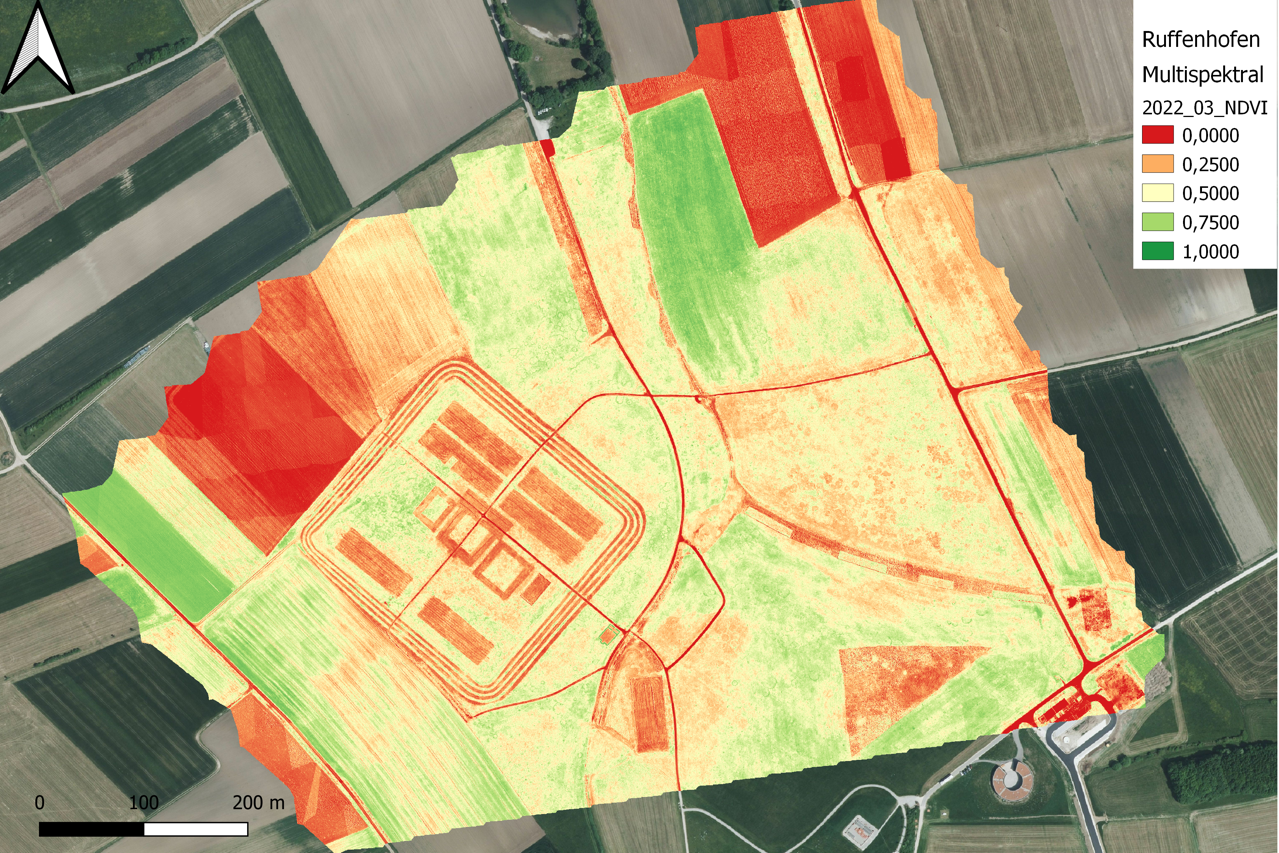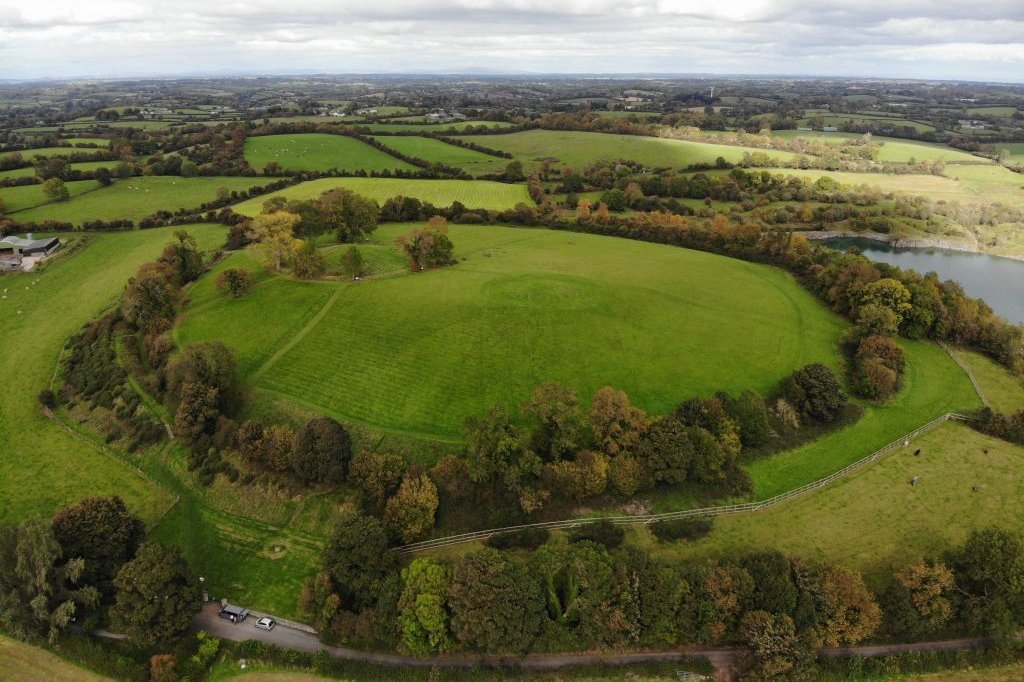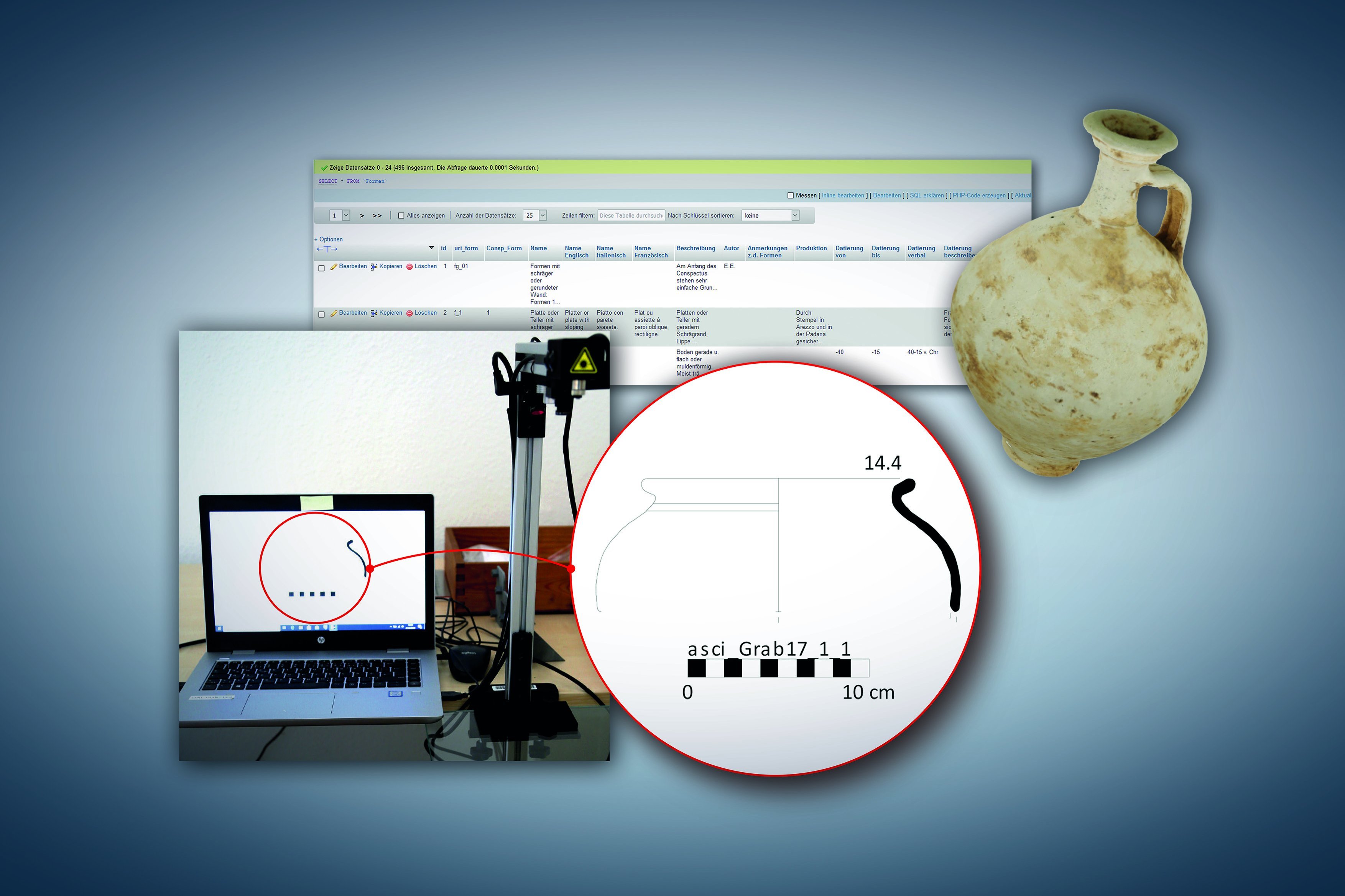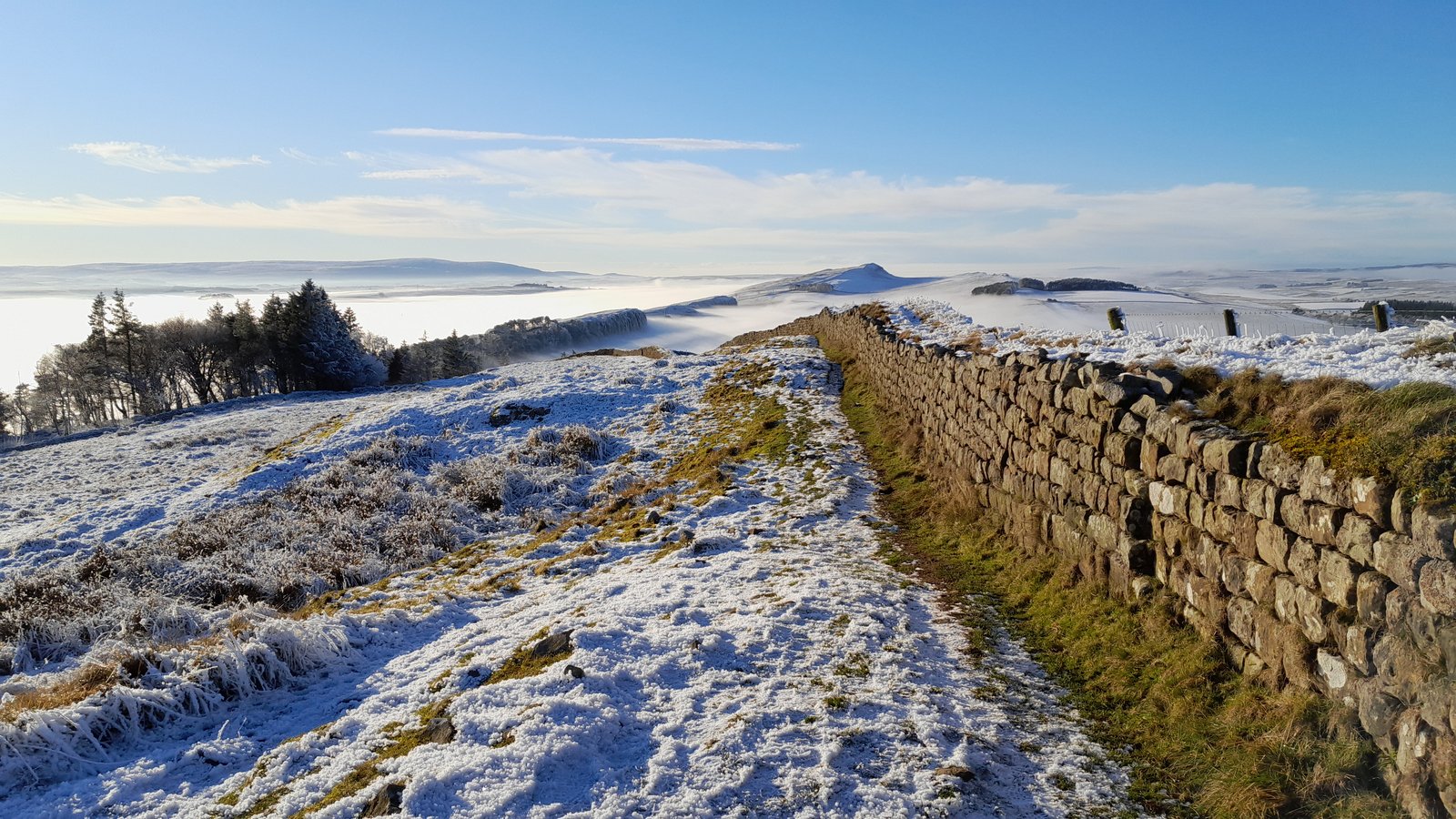topics & outlook
Pondered, innovative and well-founded, joint archaeological research in Europe in its plurality and diversity
Our Profile
The Roman-Germanic Commission (RGK) has been researching prehistoric, early historic and provincial Roman archaeology for over 120 years. Its operative area ranges from the Atlantic to the Black Sea, its chronological span from the Neolithic to late antiquity. Current research focusses on topics related to border areas and zones of contact, cultural change, mobility of people and objects, human interaction with the environment as well as the creation of space, and landscape and settlement dynamics. Among the RGK's central concerns is to jointly engage in the exploration of Europe's archaeology with regard to its diversity and to overcome boundaries of various kinds. Next to topics of landscape and object archaeology, the RGK furthermore is dedicated to linking history of knowledge with novel approaches within the digital humanities. Our goal is to operate locally, whilst networking internationally throughout Europe.
Current topics
The research projects of the RGK are interconnected through overarching issues and through evolving joint research practices within four major areas.
Luftbild von Ruffenhofen mit koloriertem NDVI © DAI + RGK // H. Höhler-Brockmann + S. Schröer-Spang

Borders and cultural interaction
Guided by overarching theoretical and methodological approaches, the staff of the RGK are conducting research on the beginnings of the Neolithic way of life in Europe, on borders, paths and interaction spaces at and in the provinces of the Roman Empire, on things as border crossers in the Roman imperial period and on the diachronic change of border zones between land and water, combining traditional research approaches such as excavations, finds and corpora with the latest prospecting methods, scientific analyses and digital archaeology approaches.
Luftbild Alsónyék (Ungarn) © Kommanditgesellschaft Ecthelion // Gábor Bertók

Settlement dynamics and social structures
Based on sites and their landscape contextualization, the RGK investigates settlement dynamics and social structures, particularly in Central and South-Eastern Europe. Using common methodological approaches, late Neolithic to Bronze Age settlement landscapes from southern Hungary and northern Croatia via south-western Slovakia to the Republic of Moldova and Ukraine, Iron Age large settlements and their resource and production landscapes as well as spatial development and production from the Iron Age to the Middle Ages in Croatia, Serbia and many other regions are being researched.
Navan Fort © DAI + RGK // Roman Scholz (RGK)

COPING PRACTICES AND SACRED SPACES
Under the heading Coping Practices and Sacred Spaces, we examine how sacred spaces are created, mediated and recognized and what role different practices and media play in the context of (de)sacralization processes. In Ireland, England, Scotland and Scandinavia, we explore this using the example of megalithic landscapes. In addition, we are investigating depositions diachronically and synchronously in various case studies. A particular focus is on the handling of bodies, the dead and their legacies, including the question of challenges and resilience.
Digitale Keramikaufnahme mit Hilfe des Laser Aided Profiles und Structure from motion (SfM) Technologie. © DAI + RGK // K. Rösler, W. Domscheit, F. Auth (RGK)

EPISTEME IN DEVELOPMENT
The fourth thematic focus, Episteme in Development, is dedicated to the generation of archaeological knowledge, more precisely the further development of approaches and methods for the analysis of landscapes, objects and data as well as reflection on the history of knowledge. It thus links researchers, projects and thematic focuses of the RGK with its cooperation partners on a different level. Furthermore, it meets the demand for more transparency in knowledge production, for possible standardization of research processes and data and the explorative inclusion and (further) development of new techniques and methods, from remote sensing to the archiving of soil samples and artificial intelligence.
Networking as a core competence
In its projects, the RGK not only works on an interdisciplinary level, but at all time also with partner institutions and on an international scale. Various methods, from traditional excavations to high-tech prospections, are combined according to the latest technological standards. In addition, it contributes to research communities on theory and to projects evaluating topics of the present and future in a transdisciplinary manner. While remaining true to its founding mission, the RGK sees itself as a place of communication which networks national and international archaeology throughout Europe.
The RGK thus maintains a series of partnerships with institutions that often can look back onto years of cooperation and personal friendships. The staff is much involved with the cluster research programme under the mentorship of the German Archaeological Institute and is present in numerous committees, associations and alliances, such as the Verbund Archäologien Rhein-Main, the Deutschen Verband für Archäologie and the European Association of Archaeologists.
With its headquarters in Frankfurt/Main, the RGK is not only positioned at the geographical centre of Europe but furthermore that of an extensive web of archaeological organisations embracing both Europe and the rest of the world.

